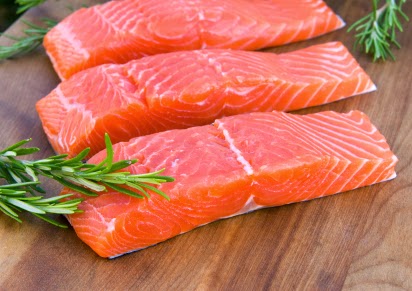We now know today, that margarines for instance, are full of deadly trans fats and that eating animal fat doesn't actually do much harm at all. Also our supermarkets are packed full with products screaming LOW FAT or NO FAT, from the packaging. These products are usually packed full of sugar instead. The dietary guidelines (the food pyramid or my plate) recommend basing your diet on grains... this is meant to be interpreted as whole grains, however, most people tend to interpret white bread, pasta, etc.. But which ever way you interpret that information, basing the diet on carbs is just wrong. However, having said that carbohydrates seem to be getting a raw deal lately with a gluten free diet being in fashion - especially in Hollywood.
So, here I want to specify what a GOOD carbohydrate is - we all know which are the bad ones; white bread, pasta, anything with refined flour in it... But there are many naturally occurring carbohydrates in healthy foods which are good for you. But first you have to understand is that carbohydrates are not an essential part of your diet. If you never ate carbohydrates ever again, you would be healthy. Unlike fats... there are essential fats such as Omega-3 and essential proteins (amino acids), if you didn't get enough of these then you would not be feeling at all well.
Good Carbohydrates are found almost exclusively in plant foods such as vegetables, beans, whole grains, fruit, nuts and seeds. This type of carb are important, they include high levels of vitamins and minerals, fiber, and plant compounds that have healing properties called phytonutrients, or phytochemicals. These are medicinal molecules such as curcumin in turmeric, glucosinolates in broccoli, anthocyanidins in berries and black rice, for example. However, the focus should be on slow carbs. Slow carbs are the ones that release their glycemic load slowly into the bloodstream and do not cause spikes in glucose levels which in turn cause insulin to be released by the pancreas.
So, which plants are the best?
Eat as much as you like:
 Slow burning, low glycemic vegetables such as broccoli, asparagus, spinach, chard, kale, cabbage, bok choy, etc.. You can eat as much of these as you like, in fact your whole diet should be based on them. Sea weed is another one that is great for you. Try Kombu, nori, hijiki, and wakame, they are all very high in minerals, protein and healing compounds.
Slow burning, low glycemic vegetables such as broccoli, asparagus, spinach, chard, kale, cabbage, bok choy, etc.. You can eat as much of these as you like, in fact your whole diet should be based on them. Sea weed is another one that is great for you. Try Kombu, nori, hijiki, and wakame, they are all very high in minerals, protein and healing compounds.Eat a moderate amount:
Whole grains, and I mean whole; black, brown and red rice, quinoa, amaranth, buckwheat, and teff are all delicious and all gluten free. Legumes are fiber-rich, phytonutrient-rich and are not used enough. You all know what they are, lentils, chickpeas, yellow split peas, soybeans - especially edamame, pinto beans, navy beans, adzuki beans, etc..
Dark berries such as blueberries, cherries, blackberries and raspberries are packed full of phytonutrients. The richer in color the better they are for you. Fruits with stones in their center such as peaches, nectarines, plums, etc., these are fiber rich. Apples and pears are also great.
Fiber stabilizes blood sugar by slowing the absorption of carbohydrates, this is why you should always eat the whole fruit and not just the juice. The fibre in fruit helps slow the absorption of the sugar.
Limit these carbs:
Starchy, high-glycemic cooked vegetables including winter squashes, peas, potatoes, corn, and all other root vegetables. These vegetables raise blood sugar quickly and have a high-glycemic load, eat only occasionally.
There are also fruits that are high in sugar such as melons, grapes and pineapple.
All other PROCESSED CARBS should be avoided at all times.
As I said before; fat is essential to our bodies. Fats make up our cell walls, if you don't get enough or you eat too much of the wrong type, you will not have the right building materials for healthy cell membranes. Omega-3 fats are perfect for cell regeneration.
Good Fats:
 Wild cold-water fish or sustainably raised cold-water fish such as wild salmon, sardines, herring,
Wild cold-water fish or sustainably raised cold-water fish such as wild salmon, sardines, herring, halibut, etc., Eat avocados and olives these are great sources of monounsaturated fats. Use extra virgin olive oil, rich in anti-inflammatory and antioxidant phytochemicals. However, olive oil should not be used for high temperature cooking. Walnut oil is another good one for salad dressings. Coconut oil is one of my personal favorites, it can be used in high temperature cooking and contains lauric acid, a
powerful anti-inflammatory fat.
Grass-fed animals having been raised on a diet of foods natural to their breed have healthier fat profiles than factory farmed animals.
So, eat the right carbs and base your diet on plants and make sure your animal protein is the best type in order to get top quality nutrition.
I can help you improve your health. If you would like to make an appointment with me either in person or via Skype, just send me an email to lucycarr@socialnutrition.com



No comments:
Post a Comment